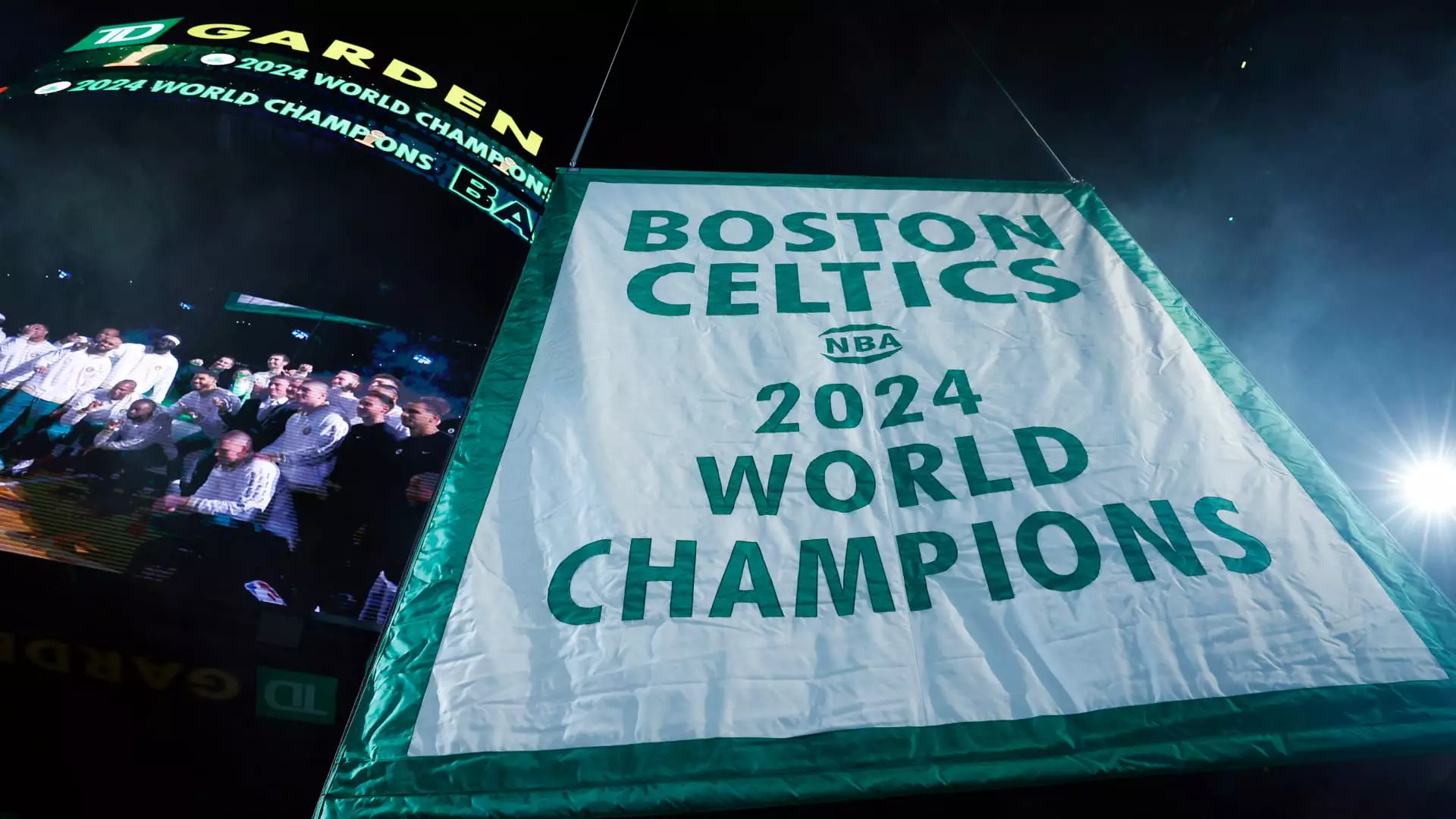The recent announcement that the Boston Celtics, the reigning NBA champions, are being purchased for an unprecedented valuation of $6.1 billion paints a thrilling picture for die-hard fans and business moguls alike. Led by private equity executive Bill Chisholm, this ownership group is entering at a historical moment, eclipsing the previous record for sports franchise sales. However, this narrative, filled with excitement and possibility, is much more nuanced than it appears at first glance, revealing underlying issues that reveal the darker side of sports commercialization.
Ownership stakes in teams are often viewed as golden tickets—access to a coveted space filled with wealth and prestige. Yet, we need to closely examine what this influx of capital means for the essence of teams like the Celtics, which have long-standing roots in their communities. Are we transforming beloved franchises into soulless commodities, devoid of the true passion that fans have nurtured over generations?
Chisholm’s assertion of being a “die-hard Celtics fan” gives a veneer of comfort, but one must question if investment moguls can truly embody the spirit of a team that has thrived on community support. Their ability to connect with fans on an emotional level is inherently diluted by the layers of corporate bureaucracy that frequently accompany such transactions. The true victory for the Celtics should not just be about championships but resonating deeply within Boston’s cultural fabric, something that may suffer under a corporate umbrella.
The Heart of Boston or the Balance Sheet?
At the heart of this transaction lies the familiar tale of private equity casting its long shadow over the world of sports. While Bill Chisholm and his partners may claim to understand the Celtics’ importance to Boston, it is essential to recognize how a shift toward profit-driven motives can compromise the integrity of the game and the connection with the community. The business of sports has undeniably turned into an investment landscape, where franchise valuations have ballooned thanks to inflating media rights deals and sky-high ticket prices.
In the case of the Celtics, the new sale price reflects a significant increase from the previously estimated value of $5.5 billion. While it may be the case that soaring media rights payments and increased interest from streaming services have contributed to this rise, it doesn’t necessarily mean that such numbers translate to a positive experience for fans. Will ticket prices now be more inflated? Will the average Bostonian feel even further priced out from watching their team live? These are questions that deserve attention as the excitement over ownership transition threatens to drown out legitimate concerns.
While it’s commendable that Wyc Grousbeck and the current ownership plan to remain involved through the 2027-2028 season, one wonders how long the entity that is the Celtics can remain a local treasure amidst the flood of capital and corporate strategies. As we witness the metamorphosis of sports from community pastime to a specter of corporate strategy, one has to ponder whether franchises can maintain their historical significance and emotional connection to their dedicated fanbases.
Community Connections Amid Corporate Culture
As the Celtics prepare for a future under new stewardship, understanding the potential ramifications for Boston’s culture and its fans is vital. A franchise’s worth extends beyond its balance sheet; it should also encompass its loyalty to the community, its players, and the legacy it leaves behind. If private equity continues to dominate this landscape, we could be paving the way toward franchises that are cash cows rather than symbols of pride and unity.
Additionally, the embrace of private equity includes incentivizing short-term profits over the long-term health of teams. This strategy often plays out in ways that can undermine the very values that make sports meaningful. The continual chase for valuation increases could lead to decisions that favor financial returns at the expense of nurturing local talents or building authentic relationships with fans.
The ownership of a sports team should come with responsibility—not just to shareholders but to the local community and the fans who have supported them through thick and thin. While the infusion of capital can be critical for progress, it must not eclipse that responsibility. As Boston embraces this monumental change, it is essential to consider whether the true spirit of the Celtics will endure amidst the pressures of profit and value maximization.

